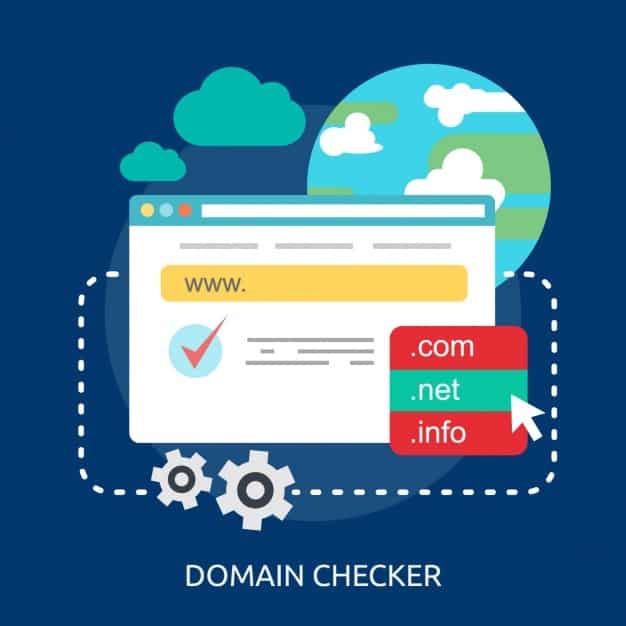If you’ve followed domain registration best practices, your URL likely consists of something basic and memorable that suits your website. Maybe it’s your business name, or perhaps you own name, followed by the standard dot com or dot net.
Have you ever wished that your domain had a little more personality?
Thanks to a boom in eCommerce and DIY web builders, everyone and their grandma now has a blog or some other kind of digital platform. That also means that top level domains (TLDs), AKA generic or gTLDs, have expanded beyond the traditional extensions of com, net, org, and edu. It’s sort of like when Ma Bell had to subdivide zones and create new area codes as the local populations grew.
Does anyone else remember the Great New York 212 scandal of 1984? They even made an episode of Seinfeld about it.
The internet explosion of the past few years has led to creation of new TLDs, called ngTLDs; the “ng” stands for “new generic”. These extensions are more descriptive, and they’ll give your URL a little more oomph.
What is a TLD?
Website IP addresses are numbers that tell other computers where you want to go. Because people are not computers, these numbers are connected to a name, which is what you see in the browser bar when you type in a URL. This is otherwise known as your domain name.
Each domain name has three parts:
- The third level domain, which is the “www” at the beginning of your web address
- The second level domain, which is your domain name
- The top level domain, which is the extension at the end of your website address.
The three parts combine to provide you with a unique web address. In addition to the gTLDs and ngTLDs, there are ccTLDs, which are country codes like eu, ca, and us.
TLD Pros and Cons
The full scope of SEO best practices begins with choosing and registering your domain name. Because there are only so many possible combinations, website owners had to be very creative when the domain they wanted was unavailable or too expensive. That led to names that were overly long or punctuated with underscores and dashes.
With the new TLDs, it’s possible to register a common name that’s otherwise unavailable with the traditional dot com or dot net. You can also let traffic know just what your website is about when you register as mybusiness.marketplace or busywriter.blog.

Unfortunately, every positive advancement has a downside, too.
Much like retaining 212 became a status symbol for New Yorkers in the ’80s, domains with traditional TLDs carry a certain level of prestige and authority. We aren’t used to seeing web addresses like www.smiley.actor, so we might wonder if it’s legit.
No matter how fun the internet is, we still have to be concerned about security and possible scams.
There’s also the issue of possible, but unintentional, confusion. For example, you might want to distinguish your pizza place by choosing greatfood.pizzeria. However, someone searching with a keyword like “great food” might encounter greatfood.com before your website in the search results. This could lead to a loss of business if you’re not careful about raising awareness and marketing strategically.
This leads us to consider whether it’s worth stirring up suspicion or confusion to add a little pizzazz to our web addresses or just go with the flow until ngTLDs become the new normal.
Choosing the Right TLD for Your Website
Your brand begins with your name. That’s why it’s essential to build a solid foundation by choosing one that’s informative, easy to remember, and supports your brand story. Using something new and descriptive also translates to trendy and cool, at least for about 35 percent of those surveyed under the age of 30.

When choosing a domain name, the best practices still apply. If you’re thinking about using an ngTLD, consider:
- Your website’s purpose. How professional do you need to appear?
- Your audience. what is their tolerance for newness and innovation?
- Your overall marketing strategy. How effectively can you promote your website with an ngTLD?
- Your budget. Some TLDs come at premium price
If you do decide to use a new top level domain, perform a search for your domain name with a traditional TLD like com or net, and register that as well to avoid a copycat stealing it out from under you.
You can find a complete list of available ngTLDs here. It’s updated as new ones become approved and available.
Final Thoughts
When it comes to standing out from the competition, a little creativity goes a long way. While there are some challenges to overcome when choosing the best domain name for your website, choosing a custom TLD also underscores your uniqueness.
Your domain is often the first point of awareness when it comes to branding. Consider all of the above points and choose wisely. If you need a little expert advice, don’t hesitate to reach out to Level343 and talk to a branding specialist today.






































